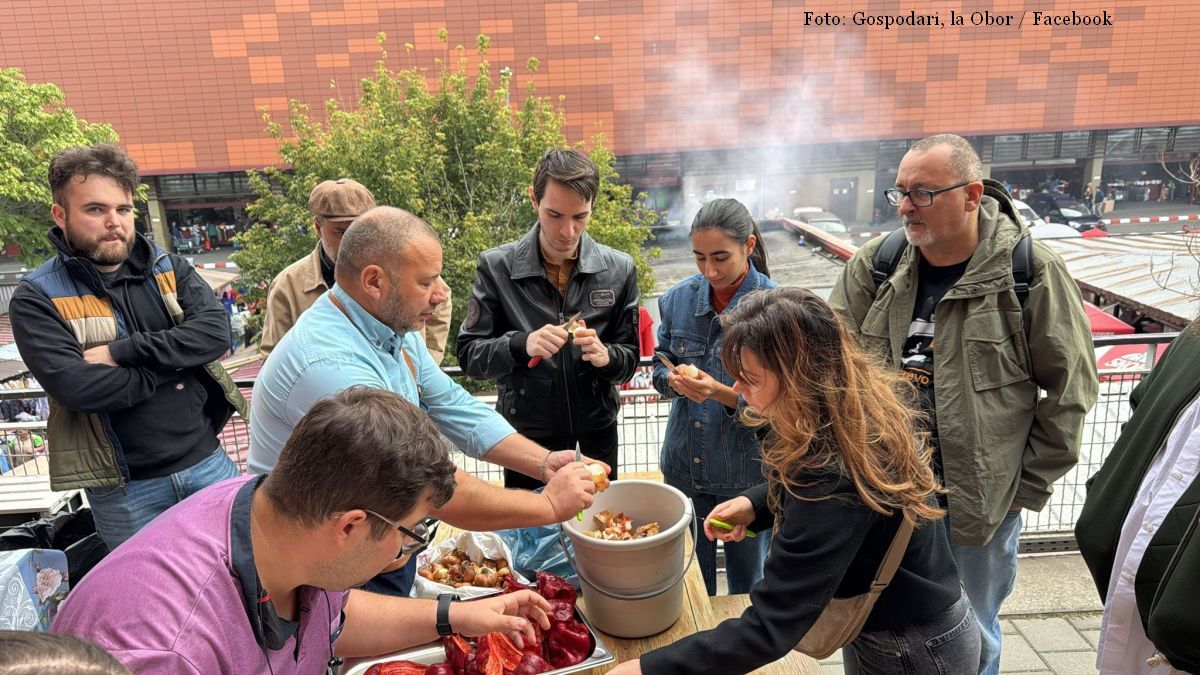Food waste
One Romanian throws away one portion of food per day

Ion Puican, 22.10.2025, 14:00
Every day, one Romanian throws away, on average, one portion of food. This means over 6 thousand tons of food wasted daily in Romania, or 2.5 million tons per year – the equivalent of 150 kilograms of food thrown away by each person. The European Union has called for these losses to be halved by 2030, and Romania already has updated legislation to combat waste. According to European data, 54% of food waste comes from households, and in Romania the trend is downward: in urban areas, waste decreased from 10% in 2016 to 6.5% in 2020, with a forecast of only 2% by 2030. The biggest sources of waste are households, followed by restaurants and shops.
To change the public’s mentality, the Short Food Chain Association (ALAS) launched the project “Householders at Obor”. The goal is simple: to create a community of people who waste nothing. The project takes place in the Obor Market and the Păsărarilor (‘Poultry Farmers’) Park in Bucharest and includes community cooking workshops with imperfect vegetables, composting sessions, guided tours and environmental education campaigns. A community composter will also be installed, so that vegetable waste can be used to fertilize the earth.
Marius Tudosiei, the founder of Short Food Chain Association (ALAS), gives us more details about the project in the Obor Market: “The project ‘Householders at Obor’ did not appear just out of the blue. It comes from a need that we discovered, and the need is related to correct information for both parties, both the producers and the household consumer. Obviously, among consumers we are also talking about restaurants, and the hospitality industry plays an important role, meaning that it has a significant percentage in the amount of food waste. Statistics speak of about six thousand tons of food that we throw away every day. Things do not look very good, but I think we can work to improve things as long as we manage to do some educational projects from our experience. The worst moments of waste are or occur at the time of purchase, and I mean from the perspective of the consumer buyer, because most consumers make pointless purchases.”
Marius Tudosiei also spoke to us about his personal experience as a consumer that led to the project “Householders at Obor” and the composter installed in the market: “To give you an example, when we place our orders for Christmas and Easter products, moments which are peaks of very high sales, we rely on statistics from previous years, so that, eventually, we are left with almost no products in the showcase. And planning is the key to as little waste as possible. And, why not, to zero losses. The project “Householders at Obor” would ultimately involve the installation of a community composter. It is a community composter, educational, if you will. The “Householders at Obor” project started as a project to accumulate information and interactions. We want to establish good relationships with the people who come to the market, so that they can trust us when we propose them to take the leftovers to the composter…”
The project proposes to educate the consumers as well as the food producers: “There is already a practice that has deep roots. There are areas with vegetables for cooking, tomatoes for soup, things like that, which are sold for a better price and I think that this also helps consumers to process the information differently and to realize that, in fact, even at home, if they have vegetables that are not so good-looking or very fresh, they could still be used with very good results. We talked about real farming even though now it’s not a very good time for this message ‘let’s go back to the old days and learn from the past experience’. This is a message that may now seem dubious or be interpreted strangely, but it is enough to remember what our grandparents did and how they knew how to manage every resource they had. If we think about these things, we can realize that even in an apartment, in an urban environment, the same strategy can be adopted and it is an extremely good strategy, which reduces our costs and makes all the ingredients we have at hand easily put to good use. The only piece of advice I give to the consumer who goes to the city, to the market, to the shops, is this: “make a plan of what you want to cook, then do the shopping according to the list”. And this list should inevitably have some amounts mentioned.”
Through initiatives such as “Householders at Obor”, Romania is taking a concrete step towards a culture of responsibility and respect for food. (LS)






























